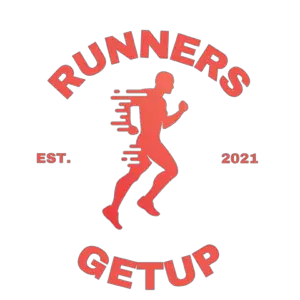This post contains affiliate links.
Ultrarunning is a sport that has seen a surge in popularity in recent years.
Though the term “ultrarunning” can mean different things to different people, it generally refers to any footrace that is longer than a standard marathon distance of 26.2 miles. Many ultramarathons are 50 miles or 100 miles in length, and some are even longer.
While ultrarunning may seem like a daunting challenge, it is actually a very achievable goal for many people. In this guide, we will cover everything you need to know about ultrarunning, from how to get started to what to expect on race day.
What You Need to Start Ultrarunning

The first question you may have about ultrarunning is, “Do I need any special equipment?”
The answer is no – all you really need to get started is a good pair of running shoes and running socks, some moisture-wicking clothes, a hydration pack, and some energy gels or bars.
Having a GPS watch is also a good addition but isn’t essential. You can always start with the basics and add more gear as you go.
In case you’re wondering what running gear I recommend, here are my favorites:
- Road running shoes: Brooks Ghost 14
- Trail running shoes: Salomon Sense Ride 4 (I usually use this for ultra runs because most ultras happen on trails)
- Running short: Lixada 2-in-1 running shorts
- Running shirt: UA Tech 2.0
- Hydration pack: Salomon Active Skin
Another important question is, “How fit do I need to be?”
While it is certainly helpful to be in good shape before you start training for an ultramarathon, it is not necessary to be a super-fit athlete.
Many people who complete ultramarathons are of average fitness levels and have simply trained hard and consistently to prepare for the race.
Of course, if you are not already a runner, you will need to start by running shorter distances and gradually building up your mileage.
Training for Your First Ultramarathon
Now that you know what ultrarunning is and what you need to get started, it’s time to start training for your first race.
The best way to train for an ultramarathon is to gradually increase your mileage over time.
You can start by adding a few extra miles to your usual runs. For example, if you normally run 30 miles per week, you could add an extra mile or two each week until you are up to 50 miles per week and gradually work to longer mileage.
The general rule is to add no more than 10% of your weekly mileage per week.
You will need to start with shorter distances and gradually work your way up.
As you get closer to race day, you will want to start doing some longer runs to simulate the distance of the ultramarathon you are training for.
For example, if you are training for a 50-mile race, you should try to do at least one run per week that is at least 20 miles in length.
These long runs will not only help your body get used to running long distances, but they will also help your mind prepare for the challenge of running an ultramarathon.
If you want to learn more about mileage, I made an article all about that. Check it out.
You also need to include some general strengthening and other cross-training exercises along with adequate rest.
Can You Run An Ultramarathon Without Training?
Of course, no running coach will ever tell a nonrunner to run an ultramarathon without first joining half-marathons and marathons, but there are a few who did jump straight to ultramarathon and finished the race without prior training.
David Goggins reportedly run his first 100-mile race in order to qualify to join Badwater. And before that, he had never trained for a race like that nor joined a marathon for that matter.
As a result, he suffered kidney failure and several broken bones in his feet. What a man!
But David Goggins aside, as a general rule, you should train before joining an ultramarathon or any long-distance event for that matter. Furthermore, you should also work your way up gradually into an ultramarathon as much as possible.
This will help keep you healthy throughout your running career. Also, this will prevent burnouts that you may experience when you overdo running.
Related post: Can You Run A Marathon Without Training?
What to Expect on Race Day
Now that you have trained hard and are ready to run your first ultramarathon, it’s time to focus on race day itself.
The most important thing to remember on race day is that ultrarunning is a mental game as much as it is a physical one.
There will undoubtedly be times during the race when your body is telling you to stop, but it is important to push through these tough moments and keep going.
Another thing to keep in mind is that ultramarathons are not like traditional road races. There are no water stops every few miles, and there may not be many people cheering you on from the sidelines.
This can make ultrarunning a lonely experience at times, but it also makes it all the more rewarding when you cross the finish line.
Finally, be prepared for anything on race day. The weather can be a major factor in an ultramarathon, and you may find yourself running in conditions that you never thought possible.
However, as long as you are prepared mentally and physically, you will be able to overcome any obstacle that comes your way.
Related post: Your First Run (What To Do, How Long, and What To Expect)
What to Eat During an Ultramarathon
Now that you know what to expect on race day, it’s time to focus on your nutrition.
Just like any other endurance event, what you eat before, during, and after an ultramarathon can have a big impact on your performance and recovery.
The Night Before The Race
The night before the race, you should eat a light dinner that is easy to digest.
You don’t want to fill up too much because it may cause digestion problems, but you also don’t want to run a race without energy.
A light pasta dish or a salad with some chicken or fish is a good option.
Ever wondered why runners often eat pasta before a long-distance race? Well, because pasta is rich in carbohydrates and it has been a tradition of many runners.
If you want to know more about pasta and carbo-loading in general, I made an article that explains it in more detail.
On Race Day
On race day, you will want to eat a light breakfast that is high in carbohydrates and easy to digest.
Oatmeal with fruit or a bagel with peanut butter are both good choices.
You will also want to make sure that you drink enough water in the hours leading up to the race.
During The Race
During the race, you will need to replenish your energy stores by taking in calories.
How many calories you need will depend on how long you are running, how fast you are going, and how big you are.
A general rule of thumb is to take in 200-400 calories per hour.
This can be in the form of gels, chews, bars, or any other type of calorie-dense food that is easy to eat while running.
It is important to experiment with different foods several months before the event and find what works best for you.
Some people find that they can’t stomach solid food during a race, while others have no problem eating a full meal.
There is no right or wrong answer, so just make sure that you are taking in enough calories to keep your energy levels up.
After The Race
After the race, it is important to replenish your glycogen stores and repair your muscles.
A high-protein, high-carbohydrate meal is ideal.
You might also want to consider taking a protein supplement in the form of a shake or bar.
The Importance of Hydration and Electrolytes During an Ultramarathon
Dehydration is one of the biggest enemies of the ultramarathon runner.
The human body is made up of approximately 60% water, and this percentage drops when we exercise.
When we sweat, we lose not only water but also electrolytes like sodium and potassium.
If these electrolytes are not replaced, we can start to feel fatigued, our muscles can cramp, and our performance can suffer.
That’s why it’s so important to stay hydrated during an ultramarathon.
You should aim to drink approximately 5-12 oz of water or sports drink every 15-20 mins. The actual number will depend on a number of factors including your pace and your body weight.
When dealing with nutrition to aid with performance, it’s best to contact a nutritionist licensed in your area.
Final Thoughts
Ultramarathon training and racing can be tough on your body, so make sure to give yourself time to recover afterward.
Take a few days off from running and focus on eating healthy meals and getting plenty of rest. Furthermore, you can do additional recovery work like foam rolling after the race.
If you follow these tips, you will be well on your way to a successful ultramarathon experience.
Now that you know everything there is to know about ultrarunning, it’s time to start training for your first race. With hard work and dedication, you will be able to complete any ultramarathon you set your sights on.

